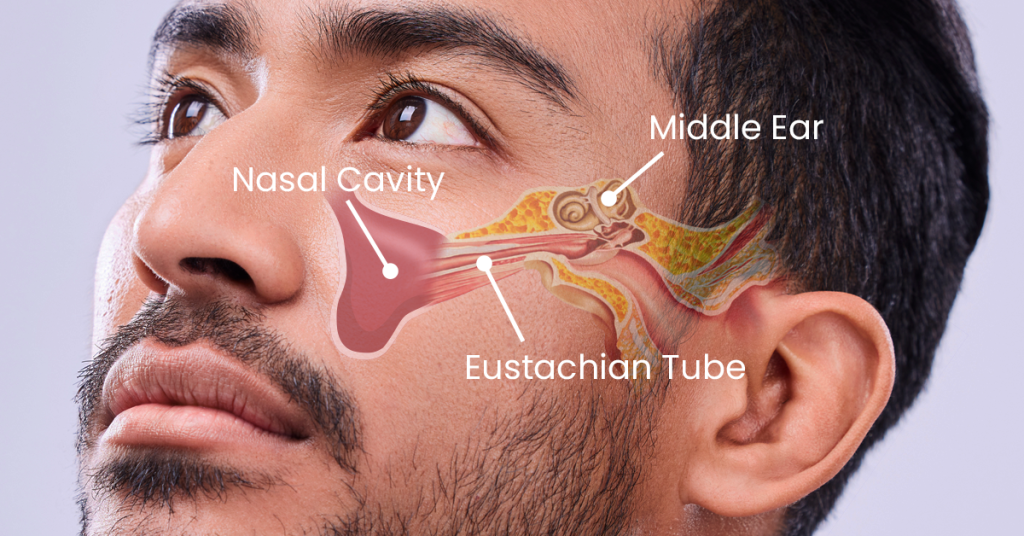
Effective Ways to Unblock Ears from a Cold
Home remedies and treatments for ear congestion have gained significant focus, especially during the cold season. Blocked ears can often be uncomfortable, making it challenging to hear or even causing pain. Understanding how to unblock ears from a cold is crucial, particularly for parents looking to help their children who might suffer from ear congestion during illness. This article discusses effective methods like natural treatments for blocked ears, exploring both home remedies and medical options as necessary.
The relationship between colds and ear pressure is evident; as nasal passages become inflamed, fluid buildup can often lead to ear blockages. We will explore various solutions, including warm compresses for ear blockage, nasal decongestants, and the benefits of hydration. The information ahead aims to provide you with practical techniques to relieve ear congestion and maintain overall ear health.
Understanding Why Ears Get Blocked During a Cold
When you have a cold, your nasal passages and ear canals may become congested due to inflammation, excess mucus production, and the spread of viruses. This congestion can lead to ear pressure and pain, as it affects the Eustachian tubes, which are responsible for regulating ear pressure.
Symptoms of Ear Congestion
Typical symptoms associated with ear congestion include muffled hearing, discomfort, and a sensation of fullness in the ear. In children, symptoms may also include irritability and difficulty sleeping. Identifying these signs early can help in implementing effective blocked ears remedies to relieve discomfort.
How Colds Affect Ears
Colds can lead to conditions like otitis media, where fluid accumulates in the middle ear, causing inflammation and pain. Understanding this connection is essential for parents, especially when recognizing when it's necessary to see a doctor for blocked ears.
Home Remedies for Ear Congestion
Natural treatments for blocked ears are often effective and include using warm compresses for ear blockage. Applying a warm towel can help alleviate pressure and promote drainage. Other methods, such as steam inhalation for ears and using a humidifier, can provide relief by keeping nasal passages moist.
Naturally Relieving Ear Congestion
Building on the basic understanding of ear congestion, it’s vital to explore various natural techniques that can help alleviate symptoms effectively.
Pressure Equalization Techniques
Swallowing techniques for ear block can include chewing gum or yawning to help open up the Eustachian tubes. These methods are simple yet beneficial for managing occasional ear pressure.
Hydration Strategies for Congestion Relief
Hydration plays a crucial role in reducing ear block from cold. Drinking plenty of fluids can thin mucus, reducing the likelihood of blockage. Nutrient-rich foods can also support health, especially during cold and flu seasons.
Herbal Remedies and Essential Oils
Certain essential oils have properties that may help relieve ear congestion. For example, using a warm oil drop in the ear can soothe inflammation. However, appropriate care must be taken to ensure safety, particularly in children.
Over-The-Counter Solutions for Ear Pressure Relief
While natural methods can often provide relief, there are several over-the-counter solutions worth exploring.
Nasal Decongestants
Using nasal decongestants can help clear the nasal passages and relieve ear pressure. Saline nasal sprays are fantastic for moisturizing the nasal cavity and promoting drainage.
Antihistamines for Ear Pressure
In cases where allergies contribute to ear congestion during a cold, antihistamines may be effective. They can reduce swelling and help prevent further blockages.
Over-the-Counter Ear Drops
For those dealing with earwax buildup or seeking to address pressure relief methods, over-the-counter ear drops can be beneficial. Following the recommended usage guidelines can effectively enhance ear hygiene and alleviate discomfort.
When to See a Doctor for Blocked Ears
Recognizing when blocked ears warrant a medical consultation is essential for comprehensive ear health and addressing potential complications.
Identifying Ear Infections
Symptoms like persistent ear pain, fever, or fluid drainage from the ear may indicate an ear infection. Understanding these signs can help in seeking timely medical attention.
Duration of Blocked Ears
Most blocked ears resolve on their own, but if symptoms persist for more than a few days or worsen, it may be time to consult a healthcare professional.
Consulting with Healthcare Providers
Regular check-ups and discussions regarding ear health, especially for individuals with chronic issues, can facilitate proper care and management strategies. Engaging with an ENT specialist for ear problems can provide tailored recommendations for effective solutions based on an individual’s health status.
Conclusion and Key Takeaways
Understanding how to unblock ears from a cold involves a combination of recognizing symptoms, exploring natural remedies, and knowing when to seek professional help. Techniques such as steam therapy for blocked ears, warm compresses, and maintaining proper hydration are crucial steps toward relieving ear congestion.
Keeping sinus health optimal during a cold by managing nasal congestion can prevent ear-related complications. Incorporating these prevention strategies, such as avoiding allergens during cold seasons and practicing proper ear care, can significantly enhance ear comfort and promote overall well-being.
As you navigate through cold symptoms and their effects on ear health, remember that most cases of ear blockage are manageable at home. However, understanding the right timing for medical intervention ensures that you maintain the best ear health possible.


